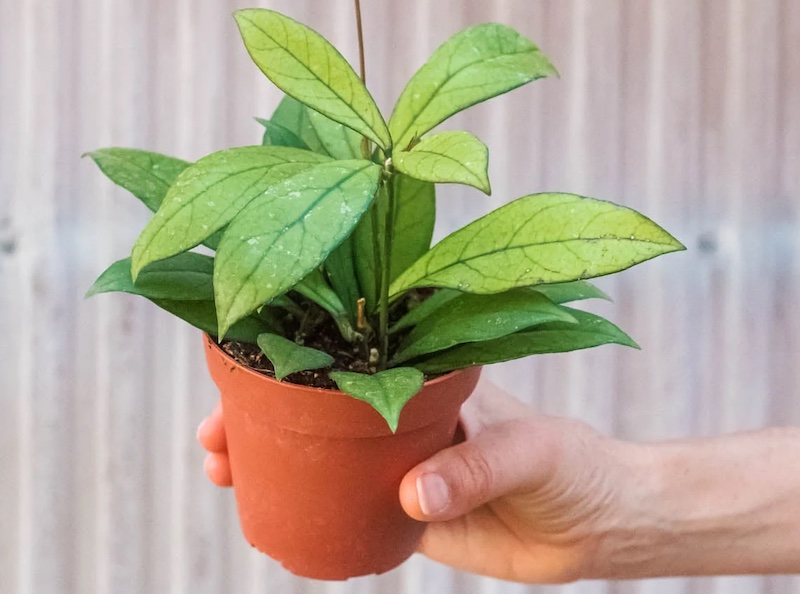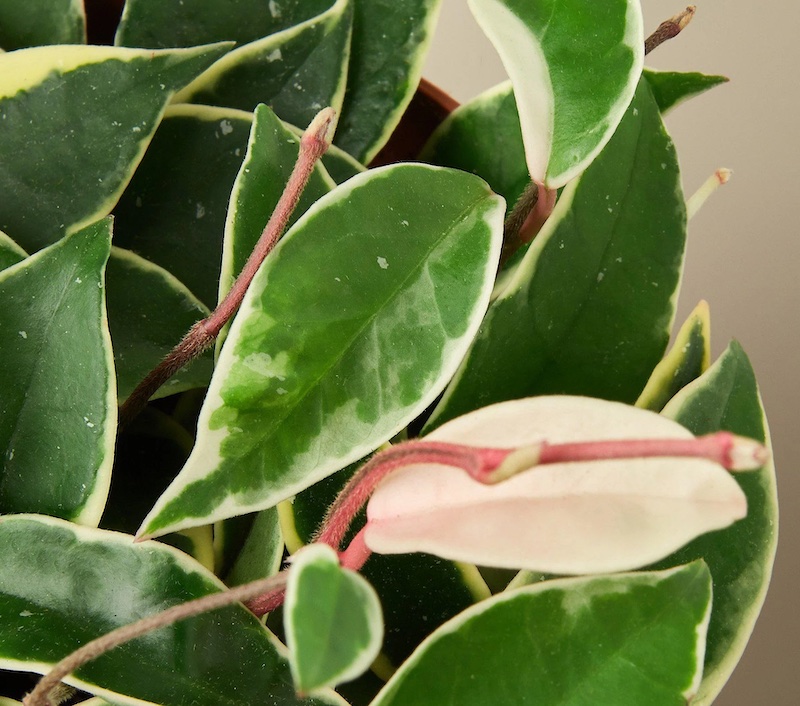Hoya plants as a group are considered non-toxic and very safe to grow around humans and pets. Some varieties do produce a latex sap when cut that can be an irritant to some with a sensitivity to latex. The widely available Hoya carnosa produces a milky, latex sap and should be handled with caution by anyone who is allergic to latex.

Is Hoya Poisonous to Children?
Hoya is considered non-toxic to all humans, although small children may have more sensitive skin and suffer very mild irritation from the sap of some varieties. Eating any part of the Hoya plant will not result in major reactions, but could be a choking hazard for small children. Decorating with Hoya is a great way to introduce children to houseplants early and may even improve the air quality in any room they are growing. Adult supervision should be provided when Hoya is grown within the reach of children.
Is Hoya Poisonous to Dogs?
The ASPCA does not consider the most popular Hoya varieties to be toxic to pets or livestock. The only danger Hoya poses to a dog is a possible upset stomach after ingesting large quantities of the leaves or stems. This is a danger with almost any plant growing around dogs. Puppies are more likely to chew on a plant and should be well supervised when around houseplants. Keeping the plants out of reach of dogs is the best defense.

Is Hoya Poisonous to Cats?
Hoya is non-toxic to cats. Rubbing against the plant or nibbling small portions of the leaves is likely to cause no harm to your feline friend. Only the soil or fertilizer in the pot may pose a problem to your cat. Cats like to dig in dry, sandy soils, which are the perfect growing medium for Hoyas. Mulching the soil with sharp gravel or decorative glass pebbles may help keep your cat from digging in the pots or using the plant's soil as a litter box. Fertilizers that are not considered pet safe may cause upset stomachs for cats that chew on any part of the plant. Cats often chew on green plants to help settle their stomach when they have a hairball. Providing a pot of cat grass could keep your cat from chewing on ornamentals in the house.
Is Hoya Poisonous to Other Animals?
The ASPCA does not list Hoya as being toxic to any pet or livestock animal. Smaller animals that consume a large amount of the leaves or stems may have mild stomach upset that rarely requires veterinarian care.
Symptoms Of Hoya Poisoning
Always check with your doctor or veterinarian for guidance if you suspect a reaction to Hoya from ingesting large quantities.
Here are some common symptoms to look out for:
- Stomach upset
- Repeated vomiting
- Diarrhea
- Loss of appetite
- Extreme listlessness
Preventing Hoya Poisoning
Plants should be moved out of reach of children and pets. Supervising young children around plants is always a good idea. Even ingesting parts of a non-toxic plant can result in stomach upset or choking.
Pet Poison Helpline
If something were to happen to your furry friend, and you suspect that they are suffering from Hoya poisoning, there is a poison control hotline to call for 24/7 vet advice. It is called the Pet Poison Hotline, and their phone number is (855) 764-7661.
Sources:
"Toxicity of Common Houseplants." Nebraska Extension in Lancaster County. lancaster.unl.edu
"Sweetheart Hoya." American Society for the Prevention of Cruelty to Animals. aspca.org
 |
Author Robbin Small - Published 04-04-2023 |
